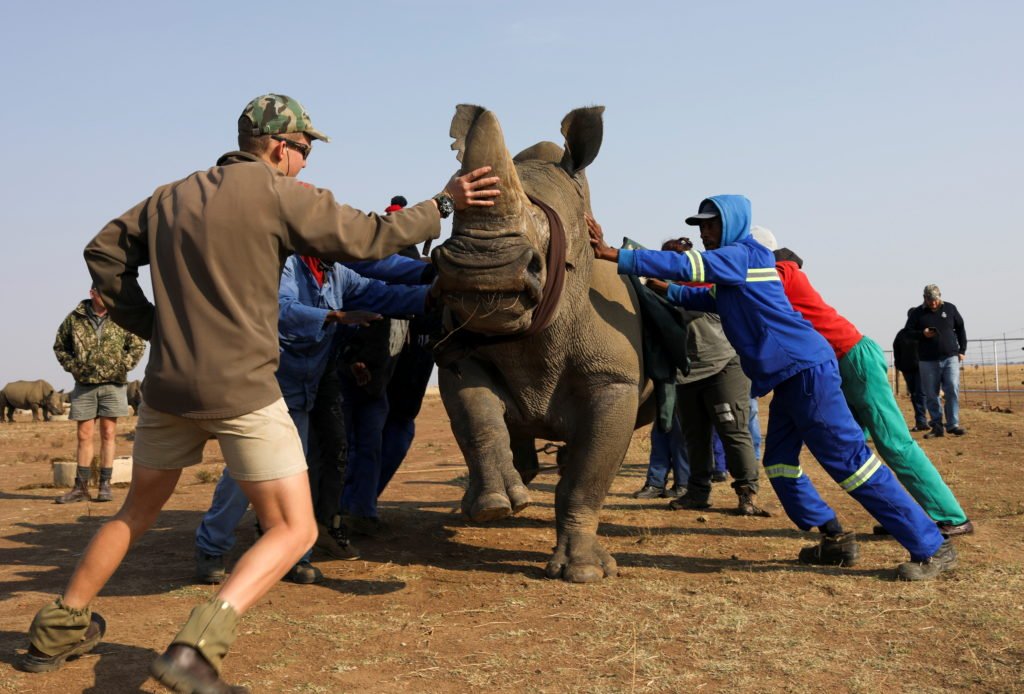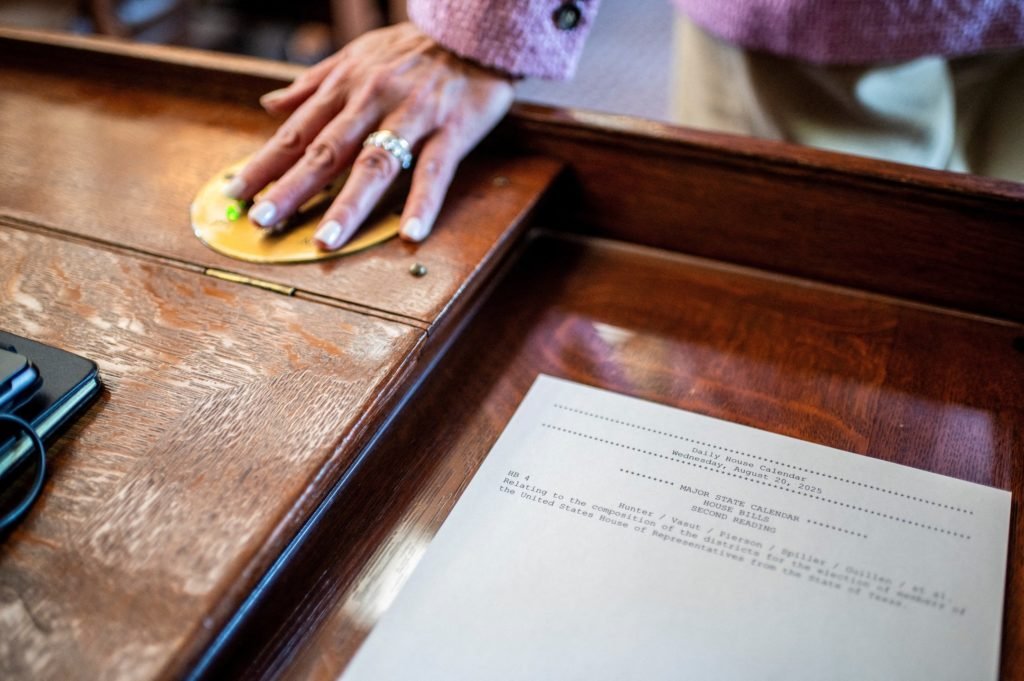JOHANNESBURG (AP) — South African prosecutors have accused a well-known rhino breeder of operating a global rhino horn smuggling network alongside five other people.
John Hume, 83, owns one of the world’s largest rhino herds at his Johannesburg ranch. He and the others are accused of a scheme involving 964 rhino horns valued at $14.1 million. Hume has not publicly commented.
Hume was granted $5,000 bond by the Pretoria magistrates court, according to the National Prosecuting Authority, after he and the others handed themselves over to police on Tuesday. Bail conditions included turning over their passports. Prosecutors said they next appear in court on Dec. 9.
WATCH: How radioactive rhino horns could help save the species from poachers
A seven-year investigation by South African authorities found the suspects allegedly secured permits under false pretenses to buy and sell rhino horns domestically while funneling the horns into illegal markets in Southeast Asia.
Under South African law, domestic trade is permitted with valid permits. However, international commercial trade in rhino horn is banned under the Convention on International Trade in Endangered Species of Wild Fauna and Flora.
According to a blog promoting the private reserve that he opened in 2009, Hume and his staff at Rhinos of Buffalo Dream Ranch care for over 1,600 rhinos, including over 1,000 that have been bred there.
The six suspects, including a lawyer, insurance broker and game reserve manager, are charged with 55 counts including racketeering, fraud, theft and money laundering.
The country’s environment minister, Dion George, called the investigation “a powerful demonstration of South Africa’s resolve to protect its natural heritage.”
South Africa fights an ongoing battle to protect endangered rhinos, with a reported 103 killed between Jan. 1 and March 31, according to the government. Authorities have focused in recent years on criminal syndicates they believe are behind much of the poaching.
The country has the world’s largest rhino population with an estimated 16,000 to 18,000, according to conservation groups. That includes white rhinos and the critically endangered black ones.




